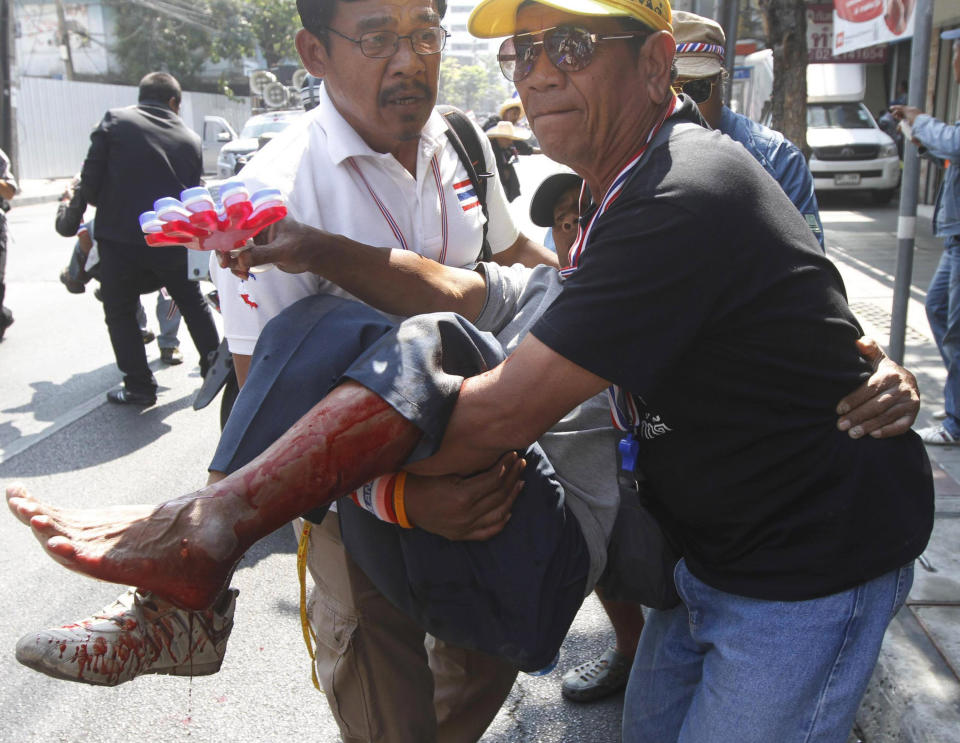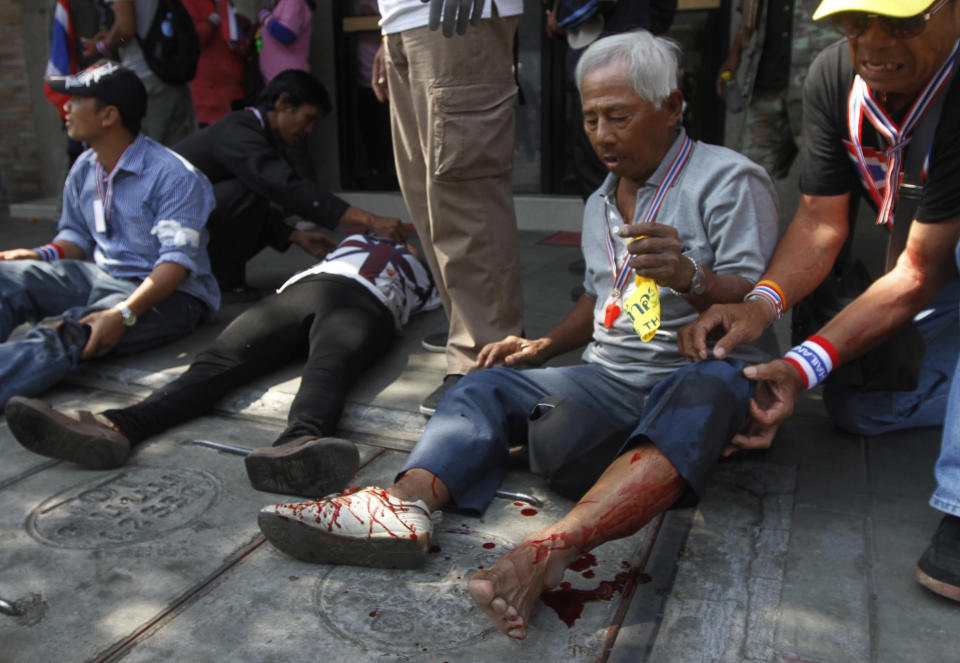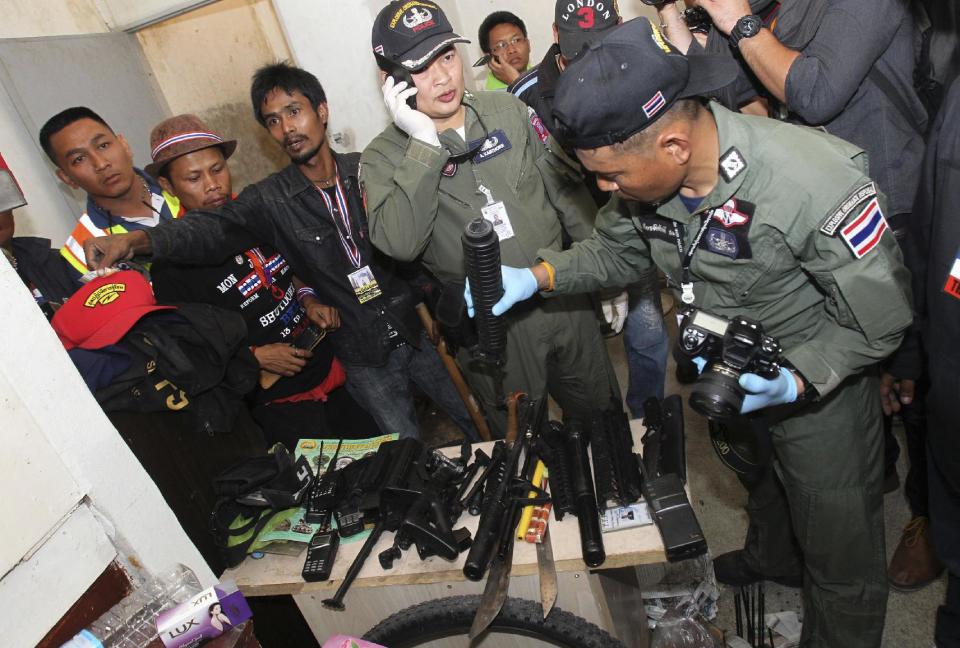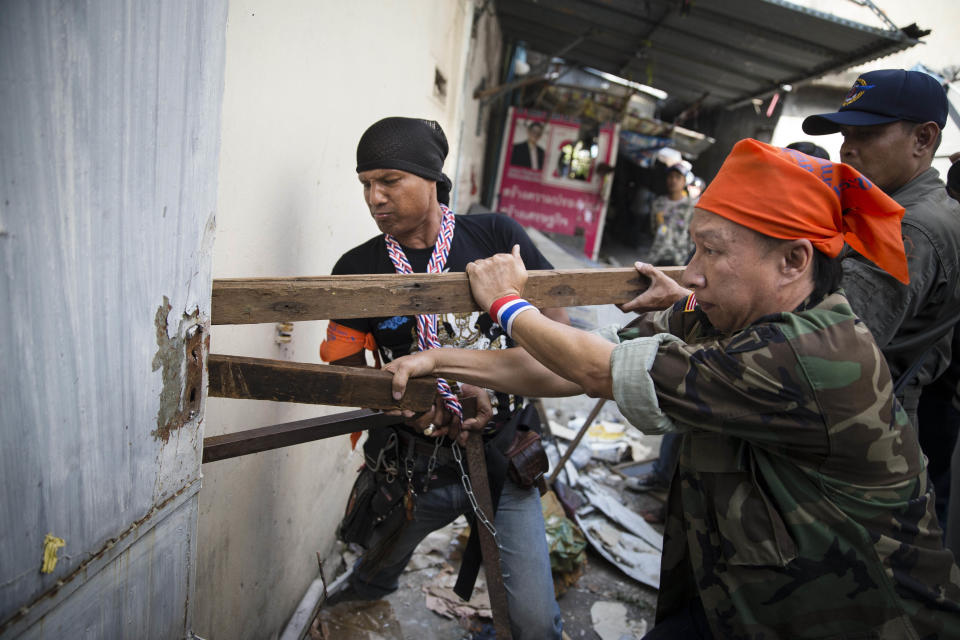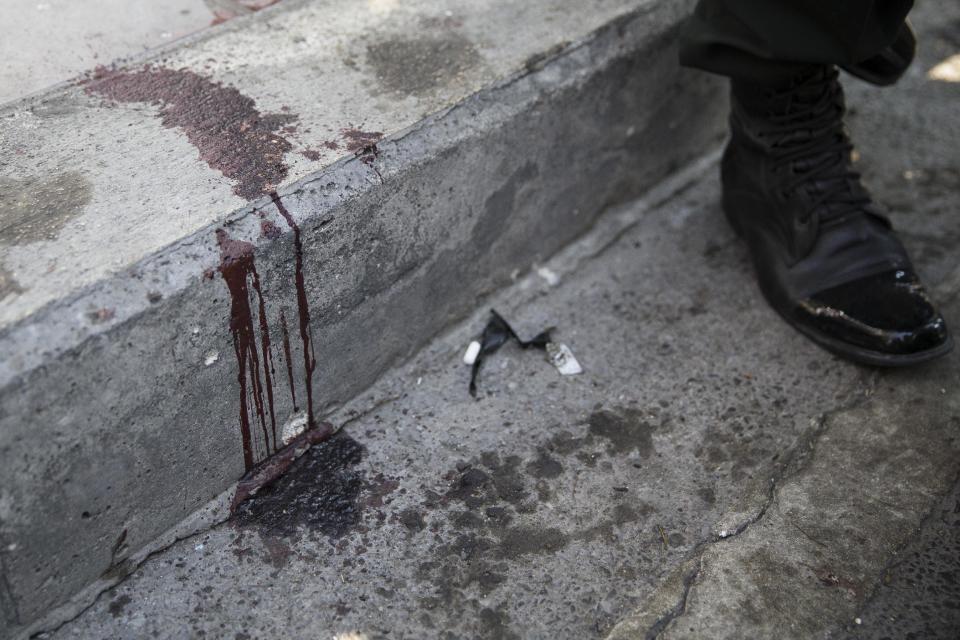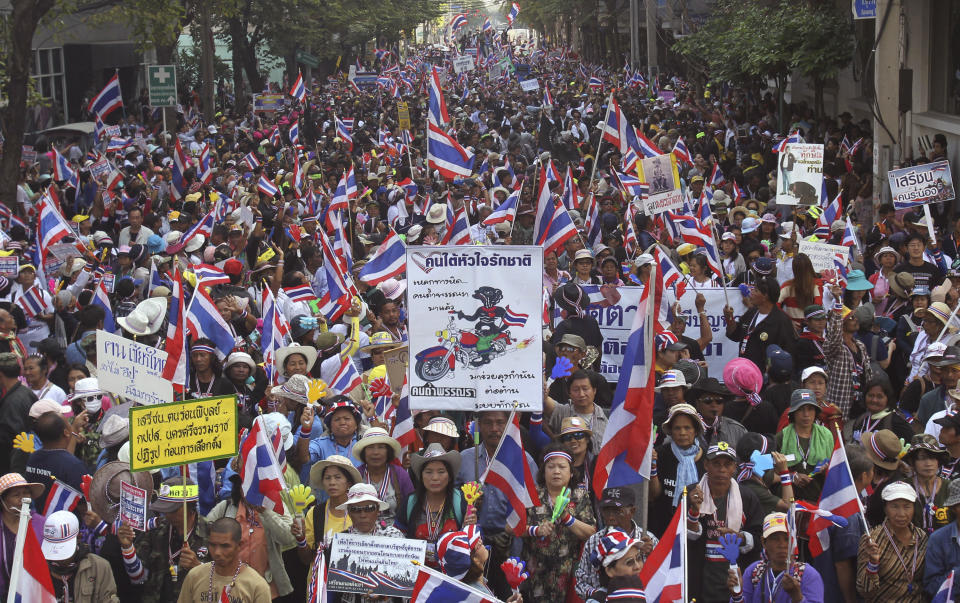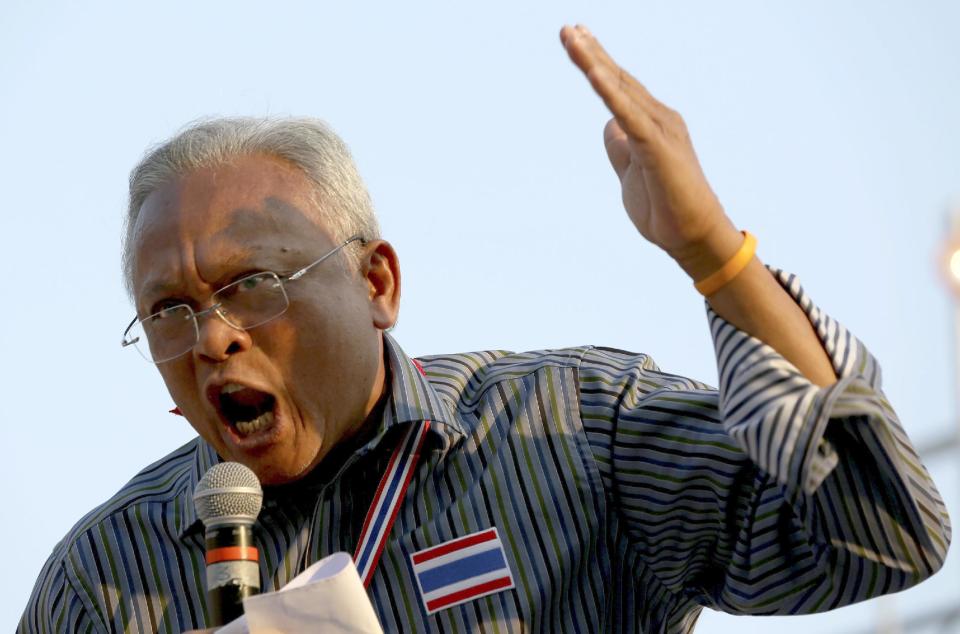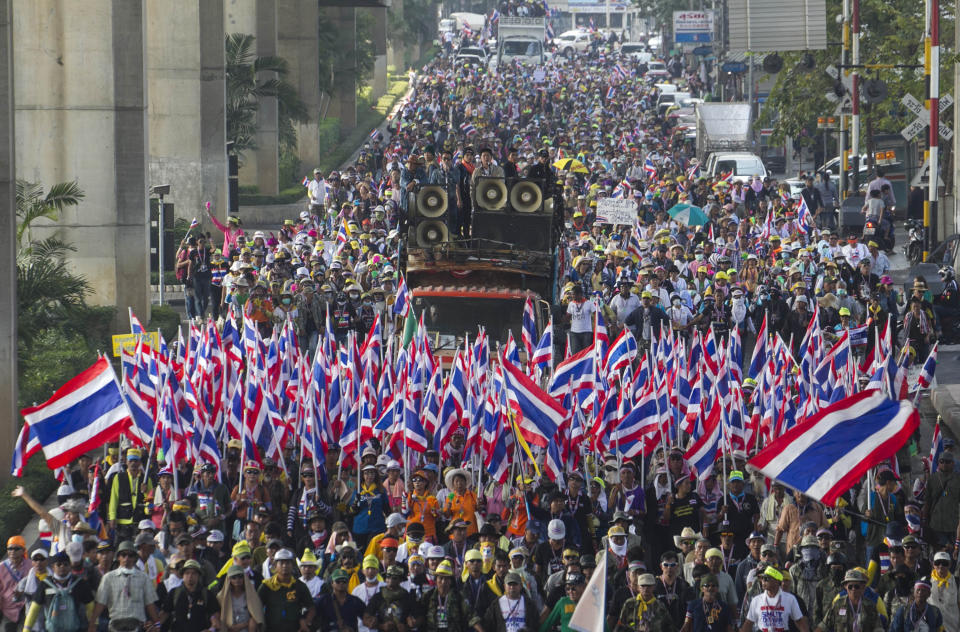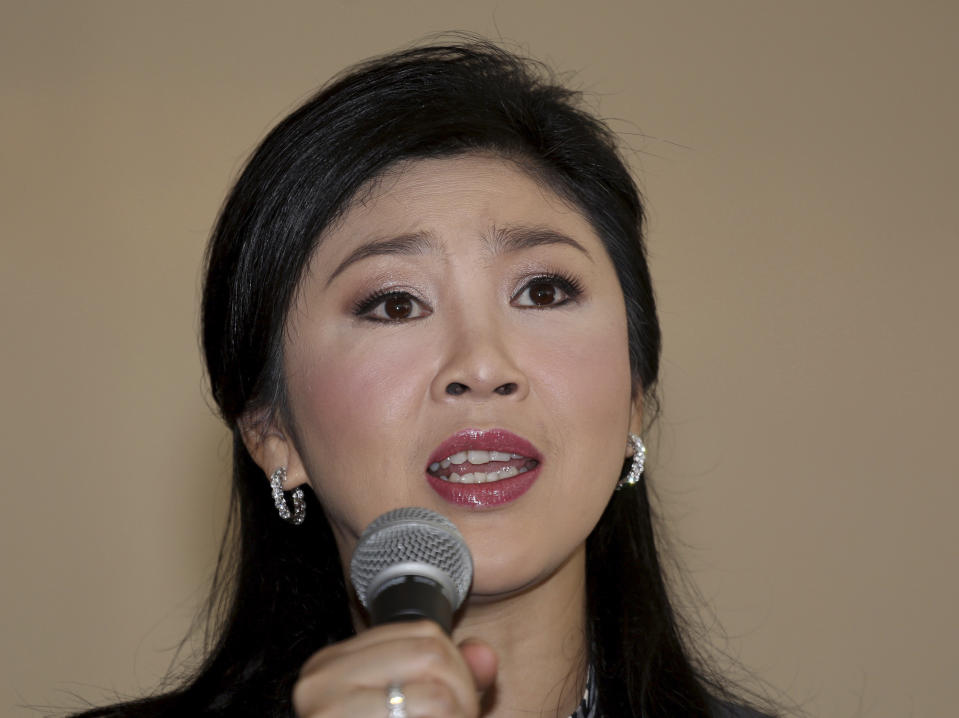Explosion hits Bangkok protesters, killing 1
BANGKOK (AP) — A grenade thrown into a crowd of marching anti-government demonstrators in Thailand's capital killed one man and wounded dozens of people, an ominous development that raises tensions in the country's political crisis and the specter of more bloodshed to come.
Protest leader Suthep Thaugsuban was in the procession Friday but was not wounded when the explosive device was thrown toward a truck driven by demonstrators that was several dozen meters (yards) ahead of him, spokesman Akanat Promphan said.
Bangkok's emergency services center said 36 people were injured in the blast, most not seriously. One of the wounded, who had been hit in the chest by shrapnel and suffered massive blood loss, died early Saturday, the center said.
Protesters vowed to continue their marches in the city over the weekend despite the violence. Most of the vast capital is calm, though many countries have warned visiting nationals to exercise caution.
Thailand has been wracked by repeated bouts of unrest since the military ousted former Prime Minister Thaksin Shinawatra in 2006 amid charges of corruption and alleged disrespect for the monarchy. The crisis boiled over again late last year after the ruling party attempted to push through an amnesty bill that would have allowed Thaksin to return from self-imposed exile.
Anti-government demonstrators seeking to oust Thaksin's sister, Prime Minister Yingluck Shinawatra, occupied parts of several major streets and overpasses in Bangkok this week, blocking them off with walls of sandbags, tires and steel barricades.
The protests, which are also aimed at derailing Feb. 2 elections that Yingluck called in a bid to defuse the crisis, have been peaceful. But assaults have been reported nightly, including shooting attacks at protest venues and small explosives hurled at the homes of top protest supporters. It is unclear who is behind them.
Yingluck urged the police to quickly make arrests in the attack, saying she opposed any use of force and was concerned the situation in the capital was becoming more chaotic.
Prolonged violence, even on a small scale, increases the risk of a military coup, which would benefit the protest movement. Thailand's army has staged about a dozen successful coups since the end of absolute monarchy in 1932. Since the latest wave of protests started in November, at least nine people have been killed and more than 480 have been injured.
Suthep, speaking Friday at one of the protest sites, accused the government of being behind the grenade attack.
"Let me tell you, brothers and sisters: There's no need to suspect anyone else. It is solely the government that is doing this," he said. "No one else would do this. They thought it up, they planned it, and they acted on it."
The government has generally gone out of its way to avoid violent clashes with the demonstrators. The authorities temporarily ceded the premises of the city police and other offices to the aggressive crowds, though on other occasions police used tear gas and rubber bullets to keep them at bay.
Police said the grenade Friday was hurled from the direction of one of several nearby abandoned buildings.
Witnesses said panicked people began running away after the blast, while some helped carry victims with blood dripping from their arms and legs. A damaged pickup truck sat idle, its front tires flat and gasoline from a ruptured tank spilling across the road near splotches of blood.
The buildings were quickly searched by protesters armed with wooden sticks. Soldiers and a police explosive ordnance disposal team combed the area, finding five walkie-talkies, several knives, rifle parts and a pair of flashlights.
The violence comes as pressure mounts against Yingluck to resign. She is facing new legal troubles after the National Anti-Corruption Commission announced late Thursday that it had found grounds to investigate allegations that she was criminally negligent in her handling of what the government had described as a deal to export surplus rice to China. The commission has already determined that there are grounds to press charges against Yingluck's former commerce minister and more than a dozen other officials.
If found guilty, Yingluck would be forced out of office.
Yingluck's supporters fear the move is part of a legal push by opponents to oust her. After her brother Thaksin was toppled in 2006, court rulings forced two other pro-Thaksin heads of government from power.
The rice pledging scheme, providing subsidies to farmers, is one of several populist policies the ruling Pheu Thai party campaigned on before winning the 2011 vote that brought Yingluck to office.
Yingluck's opponents, largely from the south and urban middle and upper classes, say she is carrying on the practices of her billionaire brother by using the family fortune and state funds to influence voters and cement her grip on power.
She has widespread support among Thailand's poor majority in the countryside because of the populist policies carried out by her brother, who lives abroad to avoid being imprisoned on a corruption conviction.
Despite the pressures, Yingluck has said repeatedly that the Feb. 2 parliamentary election will go ahead.
Her opponents don't want an election because they know that her rural supporters would almost certainly give her victory. Instead, they are calling for an unelected "people's council" to replace the government and amend laws to fight corruption in politics.
___
Associated Press writers Jinda Wedel, Grant Peck and Papitchaya Boonngok contributed to this report.

